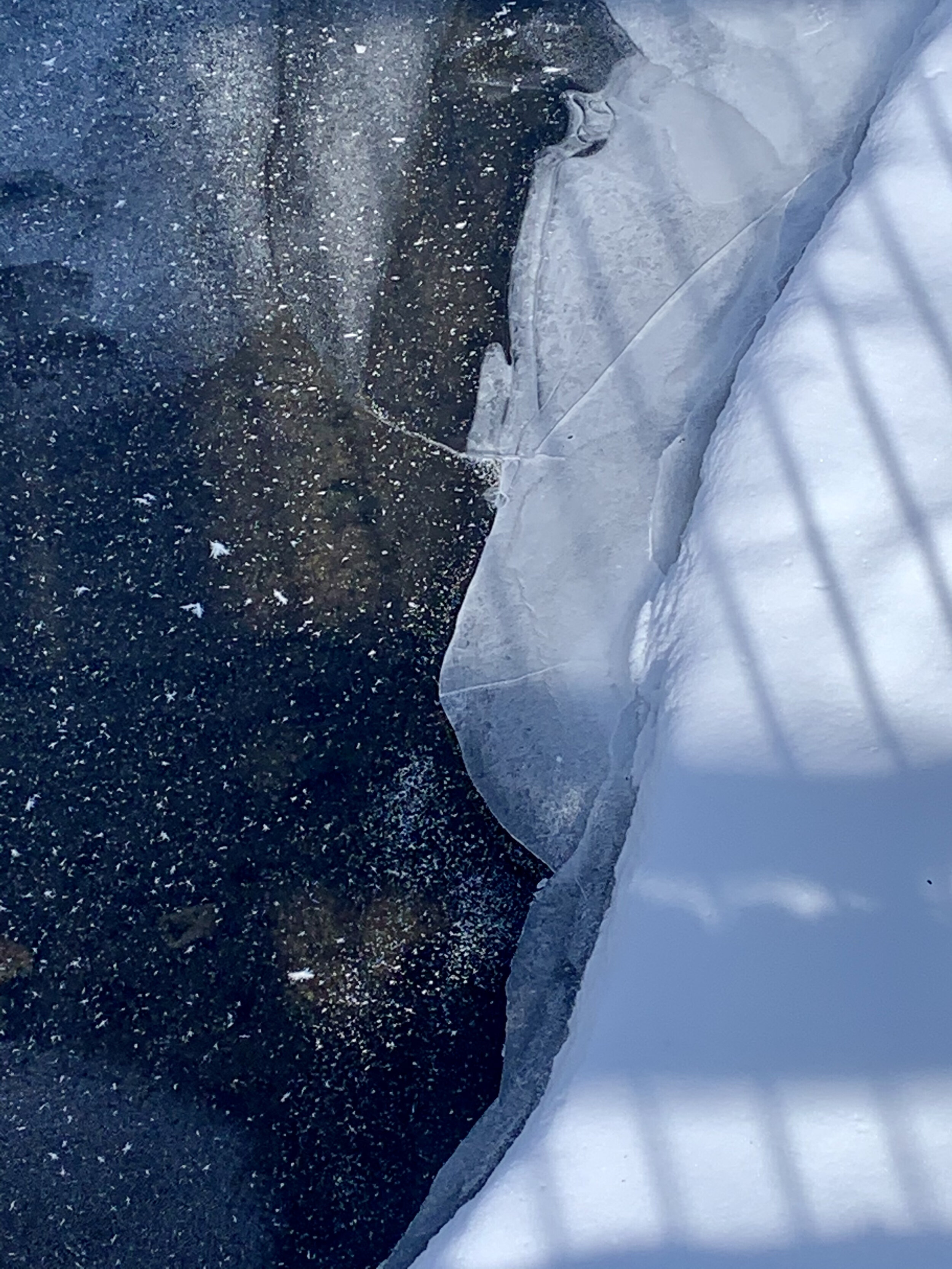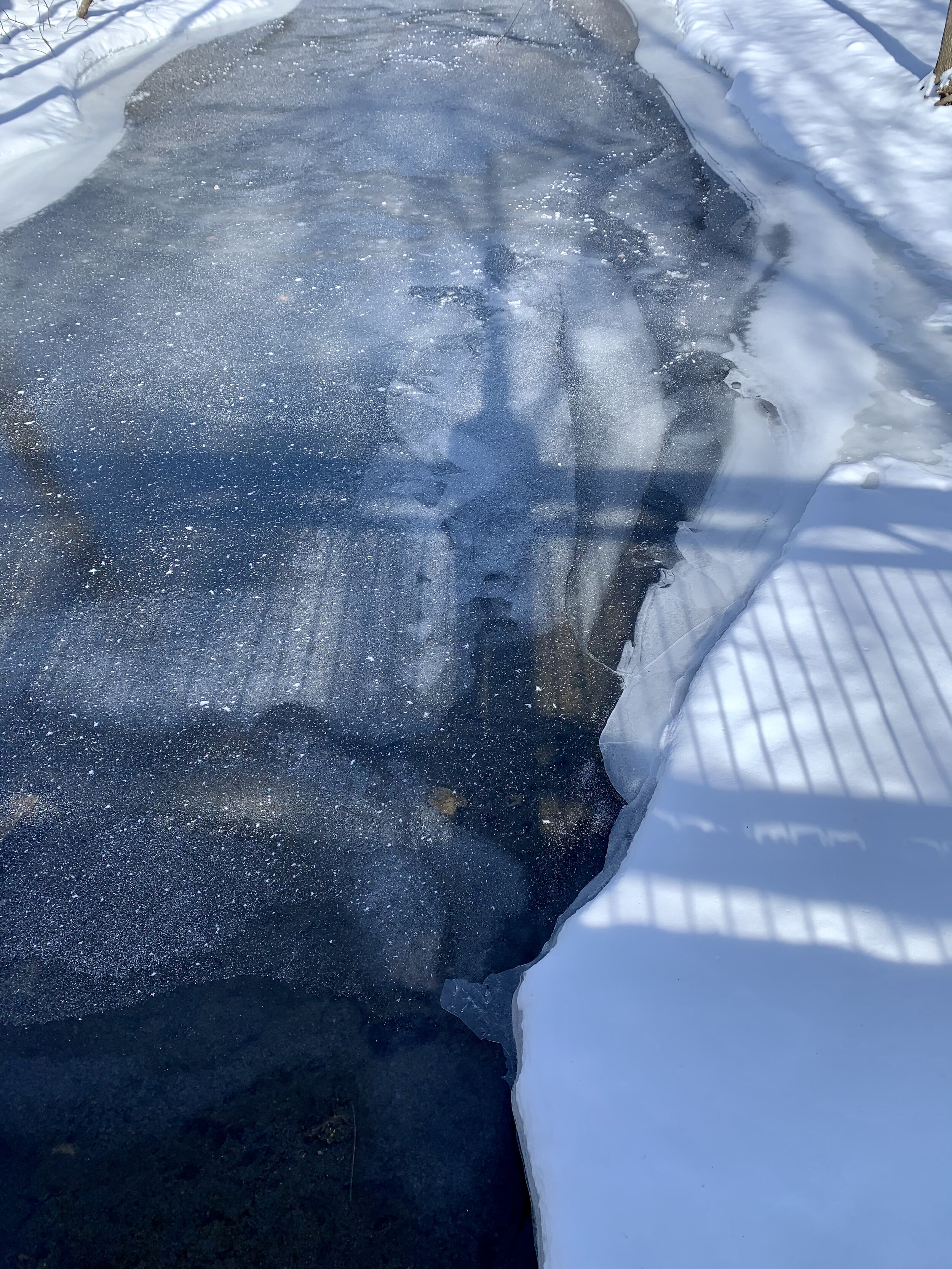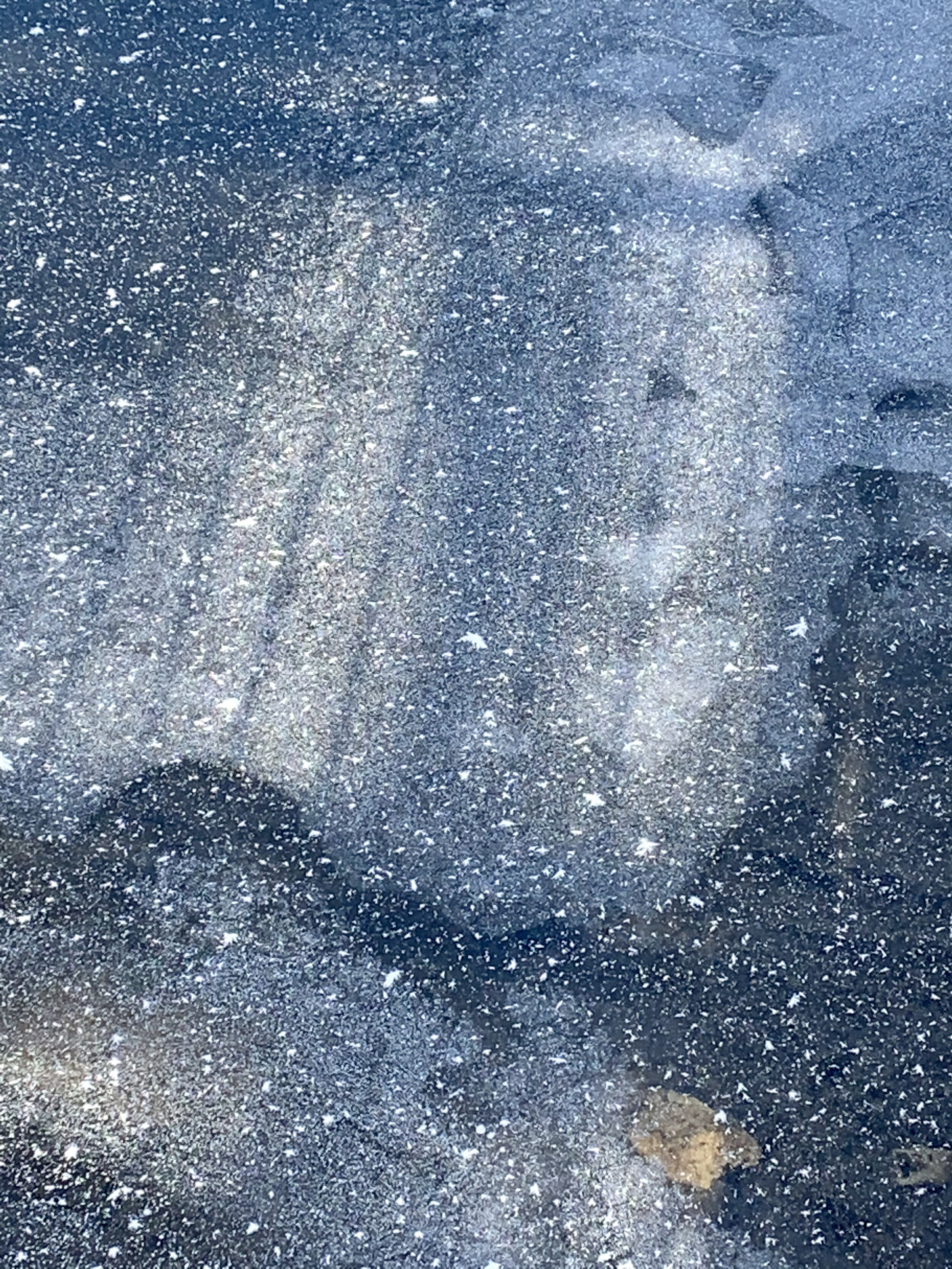I was running and overheard a woman say to her walking companion as I passed:
“I’m doing some amorphous things.”
Outside of any context, the utterance is a little poem containing worlds of possibility, each word so vast and idiomatically… amorphous (from Greek roots a, ‘without’ and morphē, form or shape, outward appearance).
What things? How many is some? What is the nature of the doing? And who or what is ‘I’?
The water in and on the Minnehaha Creek was doing some amorphous things too.
The word doing is also at the forefront of my mind recently, in the context of meditation, living, writing, and parenting. Meditation is often described as ceasing to do what we habitually do, which is think incessantly and in such a way that thinking is mistaken for being. This is what’s meant by identifying with thought. With a little distance, thoughts can be seen for the automatic emissions of brain processes that they are, bundled with emotional urgencies and the force of repetition.
How many of your thoughts are about doing, about what you “should” be doing?
As I ran, I was listening to an episode of the podcast Hurry Slowly called “It Doesn’t Matter What You Do, It’s Who’s Doing It.” The host, Jocelyn K. Glei, was talking to the healer who helped launch her transformation with the question: “Who are you without the doing?”
This got me thinking about some of the things we get most hung up on: the cruel correlations among doing, being, and self-worth. The self-flagellation takes the form of whatever your chosen, or fated, vocation, or “passion,” is: maybe it’s writing, being a writer, being a published writer, being a “real” writer. As doing morphs into being in these phrases, the judgmental valuations intensify. If you feel the urge to write, isn’t it enough to write, without also having to “be a writer” or a published one to feel real? Do you wear your doing as an identity, as a badge of your status as real?
For a long time—we’re talking three decades—this is a hook I’ve been hung up on. I’ve been writing all the while—poems, journals, essays, books, a dissertation, a blog, “some amorphous things,” another blog, and so on—and believing none of this is enough to feel real when I say “I’m a writer.” It wasn’t until recently that the idea of turning the whole concept of “being something” upside down really settled in.
In the realm of parenting, I’m tuned in to the potential harm of the culturally programmed innocent question adults ask children: What do you want to be when you grow up? Here, the emphasis should shift to the doing. “What do you want to do when you grow up?” doesn’t circumscribe the answer to identity. The pressure to “be something” can be inhibiting and cut off avenues as well as lead to feelings of low self-worth in the event that you feel you’ve failed to become the thing you set out to be.
Don’t become a writer, or be a writer, just write. Don’t do something to be doing something or to become something. I’m not suggesting being passive or having no goals. But don’t let some concept of what you “should” be or be doing cramp your possibilities for unfolding.
My answer to the question, “Who are you without the doing?” is “no one”—which opens space for creativity, play, and for “doing some amorphous things.” It’s very freeing—not to be striving to arrive at some final form; accepting that the metamorphoses continue ad infinitum. Or as Emily Dickinson put it:
I’m Nobody! Who are you?
Are you – Nobody – too?
Then there’s a pair of us!
Don’t tell! they’d advertise – you know!
How dreary – to be – Somebody!
How public – like a Frog –
To tell one’s name – the livelong June –
To an admiring Bog!








